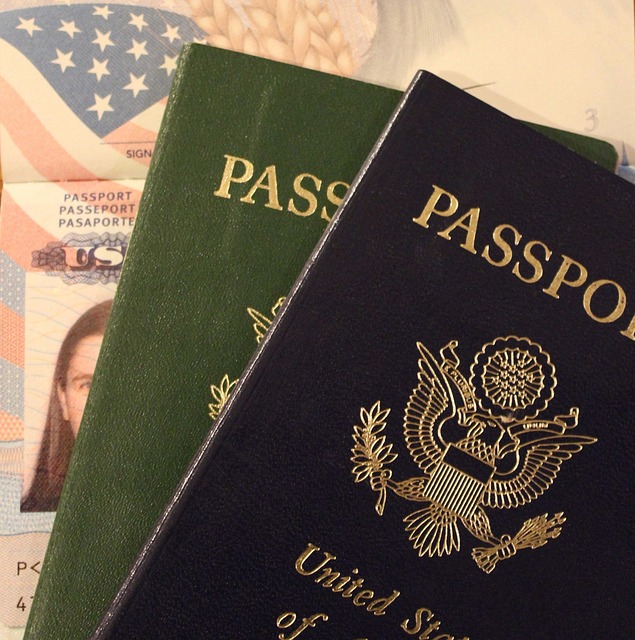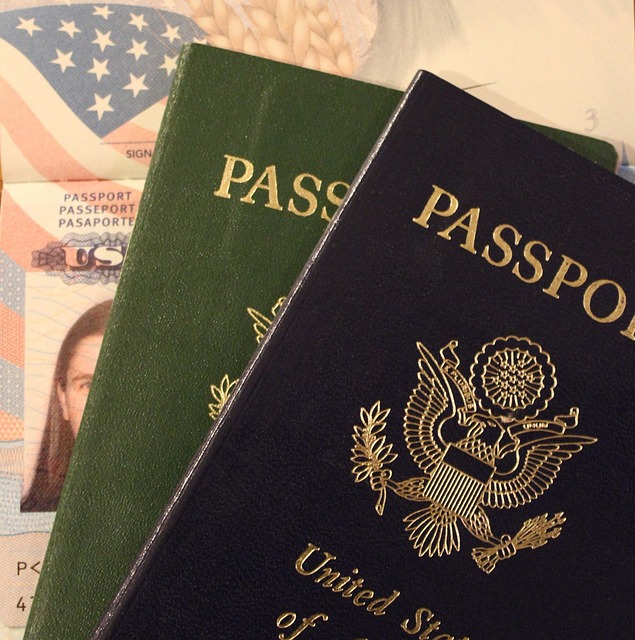When foreign language documents are required for UK legal proceedings or by UK courts, it is imperative to obtain official translations that meet stringent legal standards. These translations must be performed by accredited professionals who can provide a certificate of accuracy and, if necessary, an apostille or equivalent certification under the UK's Legalisation Act 2003. The use of official translation services UK that are specialized in legal document translations and recognized by professional bodies such as the Institute of Translation and Interpreting (ITI) or the Association of Translators and Interpreters (ATI) ensures the precision, authenticity, and legal validity of translated documents. This process is critical for ensuring that all parties involved in legal proceedings can trust the accuracy of the translations, thereby upholding the integrity and fairness of UK legal processes.
When legal proceedings cross language barriers within the UK, the accuracy and authenticity of translations become paramount. This article demystifies the process and importance of certified translations in the UK’s legal system. We will explore the critical role of official translation services UK in court settings, differentiating between certified and non-certified translations, and the stringent legal framework governing such translations. Understanding how to navigate this complex field is essential for legal professionals, individuals, and businesses alike. From the credentials of accredited translators to the documentation required for legal use, this guide provides a comprehensive overview to ensure compliance and effectiveness in UK court translations.
- Understanding the Necessity of Certified Translations in UK Legal Contexts
- The Role of Official Translation Services UK in Court Proceedings
- Key Differences Between Certified and Non-Certified Translations
- The Legal Framework Governing Translations in the UK
- Steps to Obtain a Certified Translation for Legal Use in the UK
- Accredited Translators: Their Credentials and Verification Processes
- Common Types of Documents Requiring Certified Translations for UK Courts
- Navigating the Challenges and Ensuring Compliance with UK Legal Translation Standards
Understanding the Necessity of Certified Translations in UK Legal Contexts

In the UK legal system, documents that are presented in a language other than English must undergo a certified translation process to be recognised by courts and legal entities. This is not merely a procedural formality but a critical component of due process. Certified translations, provided by official translation services UK, ensure that translated content accurately reflects the original text, thereby upholding the integrity and fairness of legal proceedings. The use of such translations is mandated to prevent misinterpretation or fraudulent activities, which could otherwise undermine the legal process. Legal professionals and litigants must engage with professional translation services in the UK to obtain certified translations that include a statement of accuracy, the translator’s qualifications, and a signature, all of which are essential for acceptance by courts. This certification acts as a guarantee of the document’s authenticity and veracity, facilitating the smoother operation of justice across diverse linguistic backgrounds. In cases involving international parties or documents, the role of official translation services UK becomes even more crucial, as they provide the linguistic bridge necessary for clear communication, ensuring that all parties are treated equally before the law and that legal decisions are based on accurate information.
The Role of Official Translation Services UK in Court Proceedings

In the context of court and legal proceedings within the United Kingdom, the accuracy and reliability of translations are paramount. Official translation services UK play a crucial role in ensuring that all parties involved have access to clear, precise, and authentic translations of documents and statements where language barriers exist. These professional services are adept at navigating the complexities of legal terminology across various languages, providing translated materials that withstand the rigorous scrutiny required by courts. The translators, who are often certified by relevant authorities, ensure that their work is a true and faithful representation of the original text, thereby upholding the integrity of legal processes. This reliability is essential as it ensures that all parties can effectively communicate, argue their cases, and reach decisions without linguistic barriers impeding the course of justice.
Furthermore, official translation services UK are familiar with the specific requirements and standards set by the courts. They understand the importance of conveying not just the meaning but also the legal implications and nuances inherent in the source material. Their expertise is instrumental in cases where international litigants or evidence are involved, as they provide translations that are legally admissible and recognized by UK courts. This level of professionalism and attention to detail is indispensable for maintaining fairness and due process, making these services an integral part of the judicial system within the UK.
Key Differences Between Certified and Non-Certified Translations

When navigating the legal realm within the UK, the distinction between certified and non-certified translations becomes paramount. Certified translations, provided by official translation services UK, are renditions of a document from one language to another that have been reviewed and validated by a professional translator who is accredited by relevant authorities, such as the Institute of Translation and Interpreting (ITI) or the Chartered Institute of Linguists (CIOL). These translators affix a statement confirming their accuracy and completeness, along with a signed declaration that the translation is true to the original. This certification renders the document legally binding in the UK, making it indispensable for court proceedings, legal contracts, and official administrative processes.
In contrast, non-certified translations are simpler renditions of text from one language to another, carried out by a proficient linguist but not endorsed by an authoritative body. While they may be suitable for general use or informal contexts, such as reading comprehension or personal understanding, they lack the legal standing required by UK courts and government institutions. Official translation services UK emphasize that for any legal documentation, a certified translation is necessary to ensure the document’s authenticity and to avoid potential legal complications. It is crucial for individuals and organizations dealing with legal matters to engage with these services to guarantee the integrity of their translations.
The Legal Framework Governing Translations in the UK

When legal proceedings occur in the United Kingdom, the accuracy and authenticity of translated documents are paramount. The legal framework governing translations within the UK is stringent, ensuring that all official documents, including those required for court proceedings, are accurately translated by professionals who are adept at navigating the nuances of language and legalese. The Association of Translation Companies (ATC) and the Institute of Translation and Interpreting (ITI) set high standards for their members who provide official translation services UK-wide. These bodies ensure that translators are competent and capable of delivering precise translations that meet the legal requirements. Additionally, translations for legal purposes often necessitate a certified or sworn translation, which includes a statement of accuracy from the translator and, in some cases, must be accompanied by an apostille or a similar certification to validate the document’s authenticity on an international level. This process is regulated under the UK’s Legalisation Act 2003, which outlines the specific procedures for legalising documents for use abroad. Thus, when seeking official translation services UK residents must engage with translators who are authorised and can provide a verifiable certificate of accuracy for their translations, ensuring compliance with the legal standards set forth in UK law.
Steps to Obtain a Certified Translation for Legal Use in the UK

When engaging in court or legal proceedings within the United Kingdom, it is imperative that any foreign language documents are presented in an official translation that holds legal weight. The process of obtaining a certified translation for legal use in the UK involves several critical steps to ensure authenticity and compliance with UK regulations.
Firstly, one must identify a reputable official translation service UK that specialises in legal document translations. It is advisable to choose a service provider that is accredited by relevant professional bodies, such as the Institute of Translation and Interpreting (ITI) or the Association of Translators and Interpreters (ATI). This guarantees that the translator has the necessary expertise and adheres to high standards of quality. Once a service provider is selected, the original document should be submitted along with a request for a certified translation. The translation service will then carry out the translation, ensuring that the text accurately conveys the meaning of the original document.
Upon completion, the translator will affix a certificate of accuracy to the translated document. This certificate confirms that the translation is complete and accurate, and it includes the translator’s full name, signature, contact information, and their professional qualifications. The certificate of accuracy also states that the translation is a true and faithful representation of the original text. Additionally, the translation may need to be stamped or sealed by an official authority, such as a notary public or the translation service itself, which operates under the Appointed Translators Scheme (ATS) or the Registered Translators Database (RTD). This additional step confirms that the translation has been performed by a professional translator with the necessary authorisation to provide legal translations in the UK. Ensuring these steps are followed meticulously is crucial for the translation to be accepted by courts and legal entities within the UK.
Accredited Translators: Their Credentials and Verification Processes

When legal documents require translation for court proceedings in the UK, the accuracy and credibility of the translated content are paramount. Accredited translators play a crucial role in this process, ensuring that all translations convey the exact meaning of the original text without any ambiguity or error. These professionals specialize in official translation services UK, possessing the necessary credentials to certify their translations for legal use. Their qualifications often include specialized language courses, rigorous examinations, and a demonstrable track record of professional translation work within the legal sector.
The verification process for accredited translators is a comprehensive evaluation of their linguistic abilities, subject matter expertise, and ethical standards. In the UK, translation agencies that offer official translation services are typically registered with relevant bodies such as the Institute of Translation and Interpreting (ITI) or the Chartered Institute of Linguists (CIOL). These organizations ensure that translators adhere to high professional standards. The verification process involves a thorough vetting of their qualifications, experience, and a review of past translations. This scrutiny culminates in a seal of approval, allowing their translated documents to be accepted by courts and legal entities across the UK. The resulting certified translations stand as authoritative versions of foreign-language documents, facilitating fair and just proceedings within the legal system.
Common Types of Documents Requiring Certified Translations for UK Courts

When legal proceedings are initiated or when individuals interact with the UK court system, it is often necessary to present documents in English, even if they were originally written in another language. This necessity underscores the importance of official translation services UK for a variety of common document types. Legal contracts, corporate records, wills, and trust deeds are typical examples where precise translations are critical for legal accuracy and compliance. Additionally, personal documents such as birth certificates, marriage certificates, educational credentials, and medical records require certified translations to be admissible in court. These translations must be executed by professional translators who are accredited by relevant authorities, ensuring the translations’ authenticity and reliability. The UK’s court system demands high standards of translation to prevent misunderstandings and ensure that all parties have a clear understanding of the content presented. Therefore, it is imperative for individuals and organizations alike to engage with official translation services UK that are recognized by legal entities to avoid any complications or disputes concerning document admissibility.
Navigating the Challenges and Ensuring Compliance with UK Legal Translation Standards

When dealing with court and legal proceedings in the UK, the accuracy and authenticity of translations are paramount. Legal documents require meticulous attention to detail due to their binding nature and the implications they carry. To navigate these challenges effectively, it is imperative to engage with official translation services UK that specialise in legal translations. These services are staffed by professional translators who are not only proficient in multiple languages but also well-versed in the legal terminologies specific to the UK. They understand the importance of adhering to the Association of Translators and Interpreters (ATI) standards, as well as the various forms required by UK courts, such as Form EX247 or EX164 for oaths and affirmations.
The UK’s legal system demands translations that are both precise and legally sound to avoid any complications or discrepancies that could arise from misinterpretation or mistranslation. Official translation services UK ensure compliance with the relevant legislation, such as the Language Services (Interpreters and Translators) Regulations 2012, which govern the provision of interpreting and translating services in legal, healthcare, and social work settings. By leveraging these services, individuals and organisations can confidently submit translated documents that are legally accepted, thereby facilitating a smoother process for court and legal proceedings within the UK’s jurisdiction.
In the UK’s diverse legal landscape, the precision and authenticity of translations are paramount. This article has elucidated the critical role of certified translations in ensuring clarity and compliance within court and legal proceedings. It is imperative for anyone involved in such processes to recognize the importance of engaging with professional official translation services UK to navigate the complexities of legal language barriers. The key distinctions between certified and non-certified translations, along with the stringent legal framework governing translations, underscore the necessity for due diligence when selecting a translation provider. By adhering to the outlined steps and understanding the credentials and verification processes of accredited translators, litigants can confidently present translated documents that meet UK legal standards. For those navigating the requirements for certified translations, this article serves as a comprehensive guide to avoid potential pitfalls and ensure their documents are appropriately authenticated and respected by the court system.
